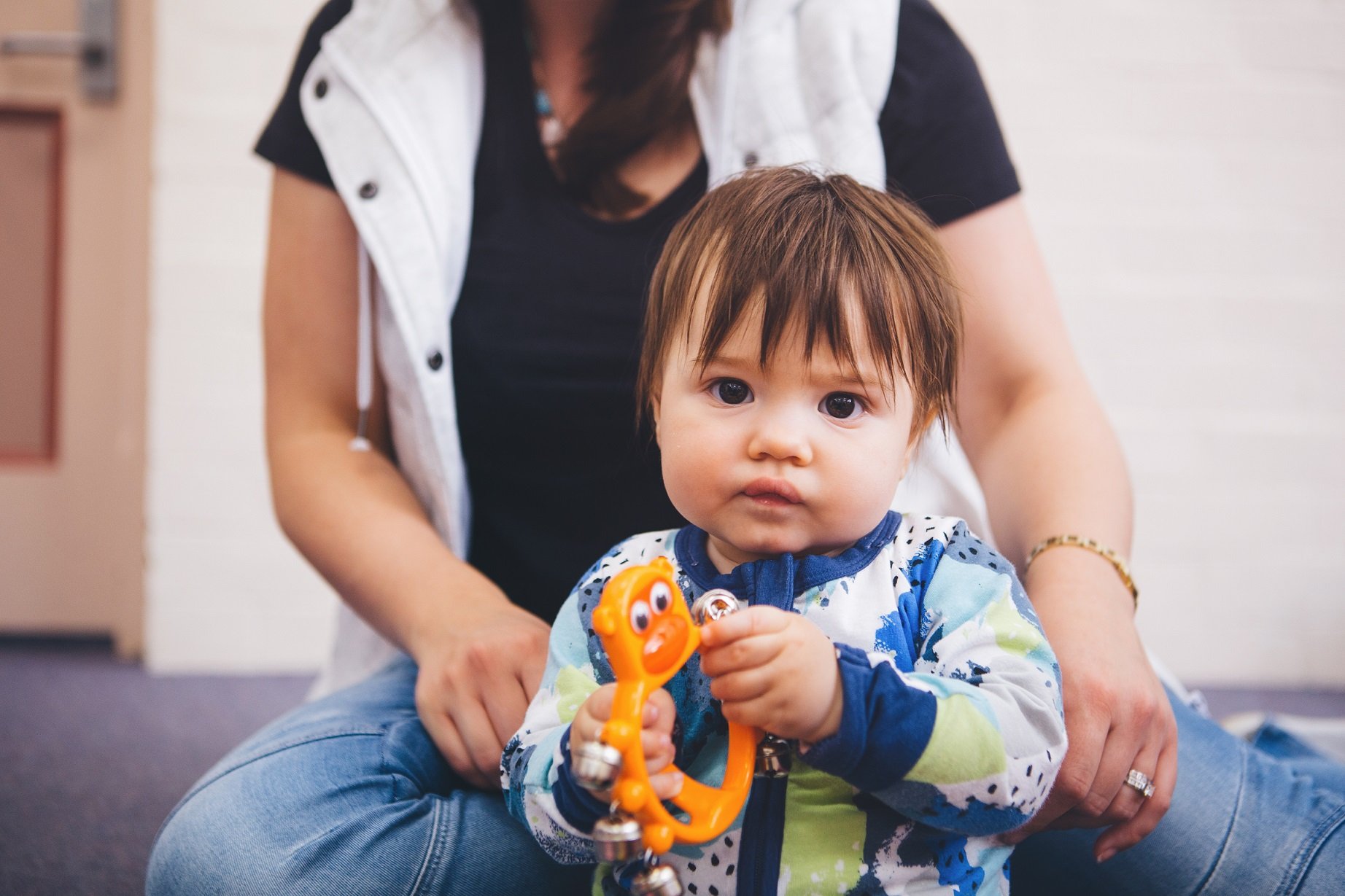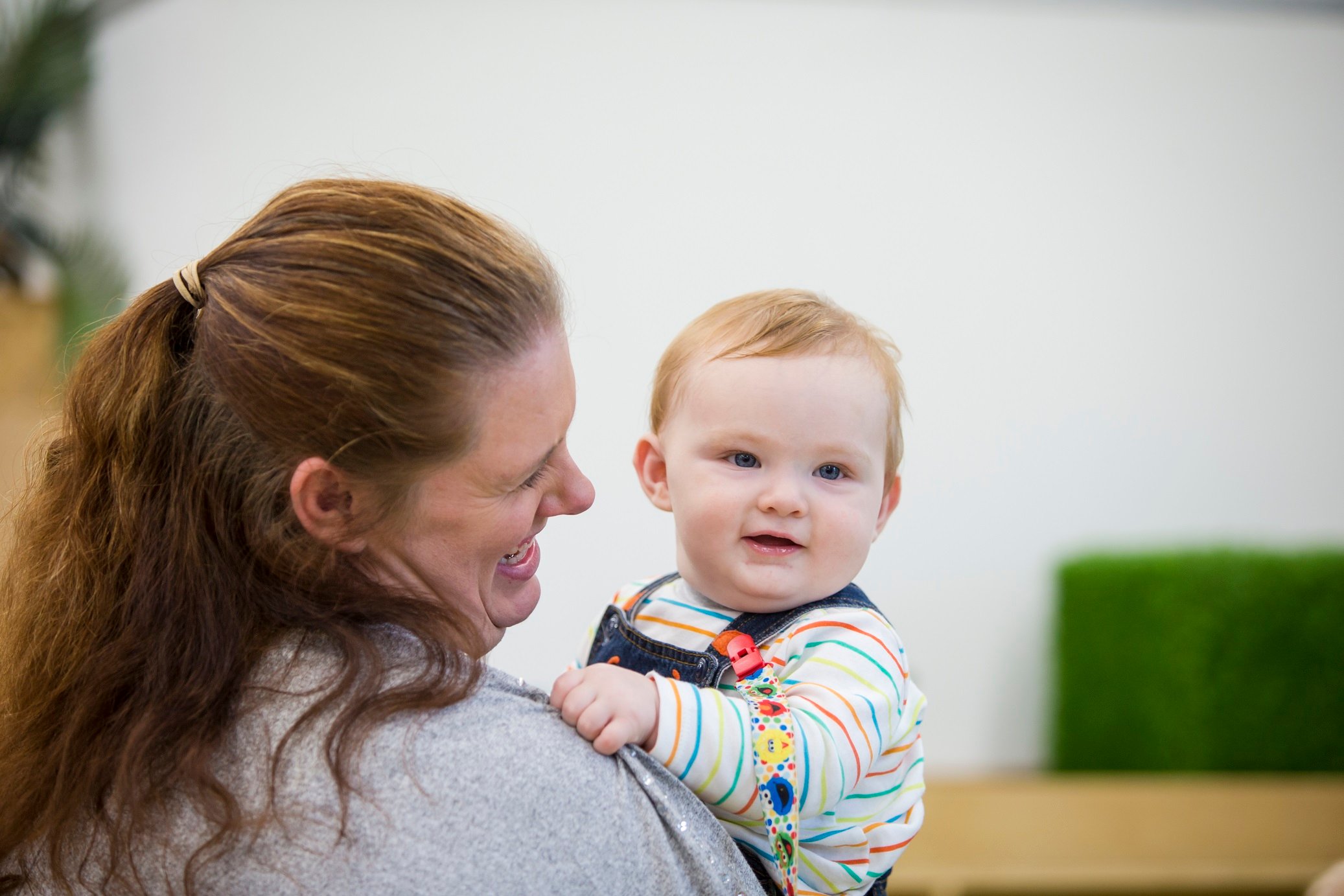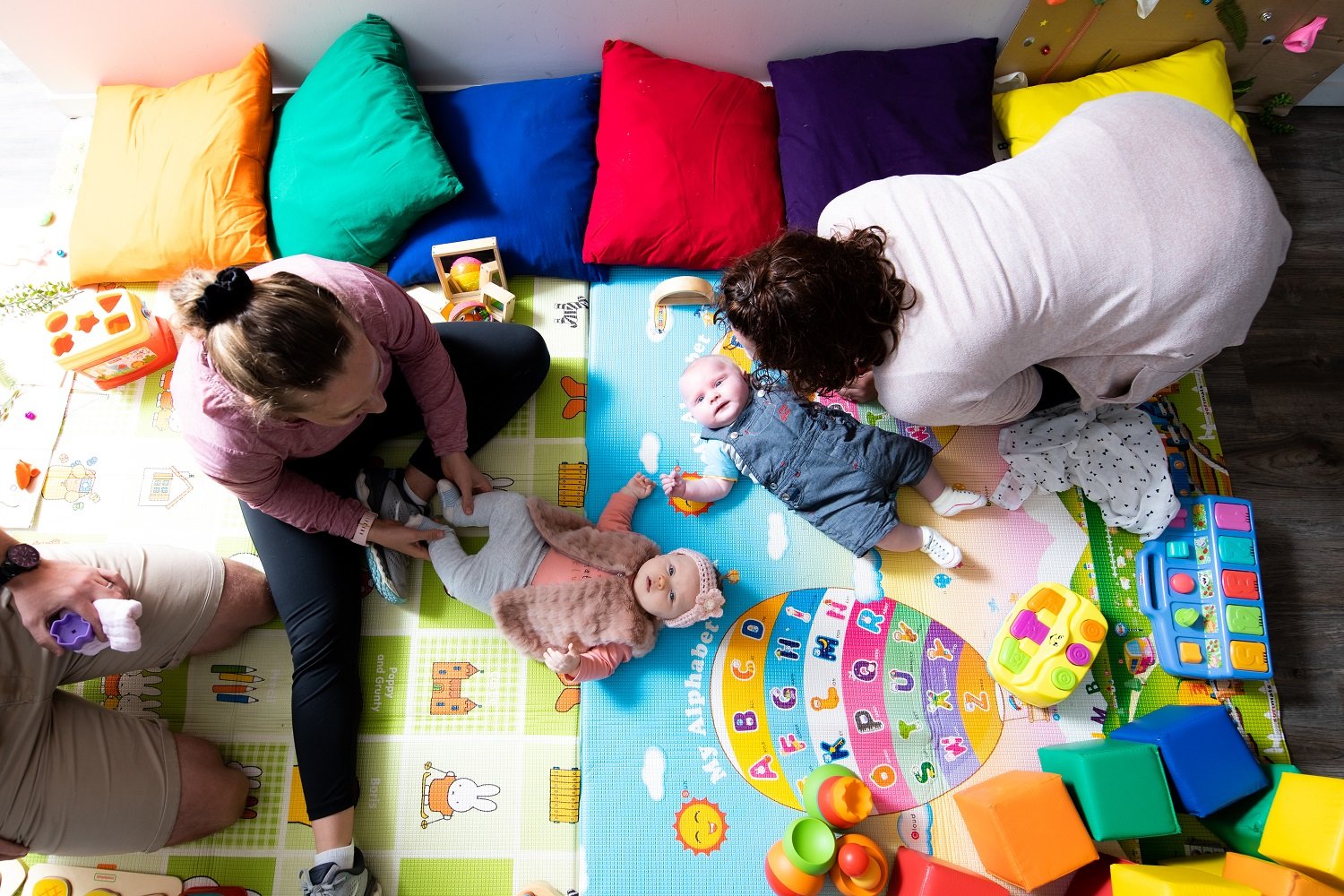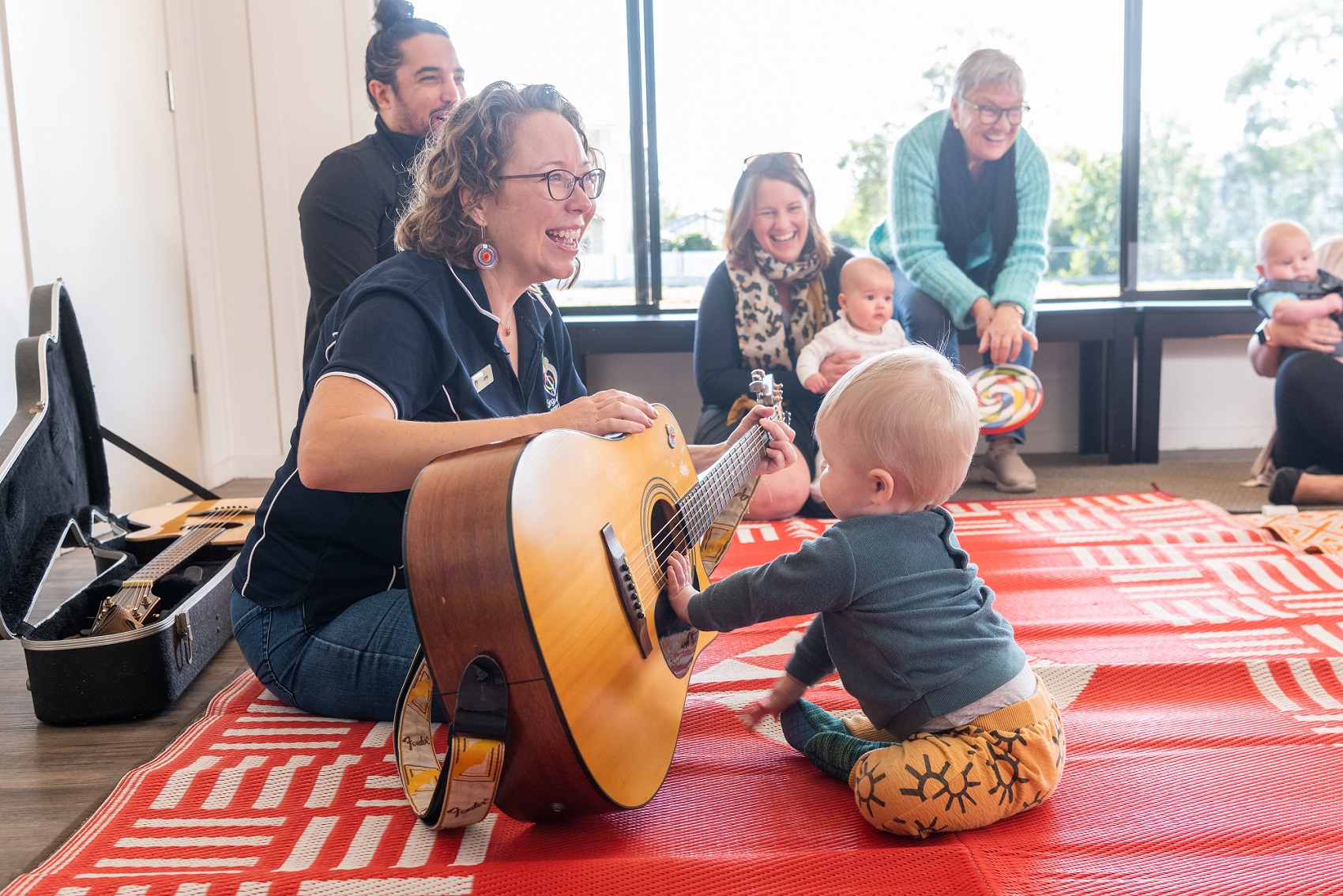Using gentle music and songs can be a great way to help children relax. You can use lullabies, distraction songs in the car, or even just something familiar and repetitive that can help your child feel safe and secure.
Lullabies
An ancient traditional method for soothing babies to sleep, lullabies are used across cultures and are simple and repetitive, in order to reduce stimulation for the child.
- Children are often really good at responding to the emotions and energy levels they see in others, so make sure to sing slowly, with a soft, gentle tone. You might like to imagine singing along to a slow, resting heartbeat.
- Children love to hear the same song sung over and over again. As you repeat the lullaby, sing a little bit softer and slower to help lull your child to sleep. You may even like to hum the song during the last repeat.

Gentle repetitive movements
Rocking and swaying can calm your child’s nervous system. This gentle movement can simulate a feeling similar to being in the womb, safe and secure. Movement and touch can also give children a sense of where they are; grounding and comforting them.
- Try rocking or swaying as you hold your child during lullaby time. The combination of your voice with gentle movement is a real winner for relaxation.
Singing a favourite song
This may help distract them and provide comfort when your child is upset. It might be useful to have a list of your child’s favourite songs on a playlist on your phone, for easy access when you need it!
Creating your own words to a well-known tune
Personalising the words to a favourite song can strengthen your relationship with your child.
- As part of your lullaby, or while singing favourite songs with a distressed child, try including your child’s name in the words, or even the name of their favourite toys.

Bedtime routines
A consistent routine helps your child to relax and fall asleep more easily. They are also opportunities to share special moments of closeness and connection with your child every day.
- Singing the same song every night before sleep will help your child recognise when it is time to wind down.
- You can even change the words of certain songs to include bedtime activities. Use ‘This is the Way’ and change the words to ‘brush our teeth/stretch our arms/say goodnight, late in the evening’.
Massaging or stroking your child
Touch can be great for calming your little one, as it can help to regulate the nervous system and make their bodies feel relaxed.
- Try giving a massage to your child while you sing. Be attentive – if your child shows signs of discomfort or distress, stop immediately, and just sing. Not every child likes to be touched, so be aware of your child’s preferences.

Remember Your Voice
Although it is a great idea to have calming songs downloaded and ready to use, no voice is quite as special to children as the voice of their parents. Your child has been listening to your voice since before they were born; that familiar sound can be really comforting to them. Try singing to them whenever you can to strengthen that bond. It does not have to be perfect! To your child, the fact that it is your voice is always enough.
Additional Music Resources
Here are some simple, relaxing songs that you can use at home:


.jpg)


.jpg)
